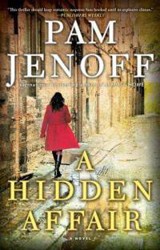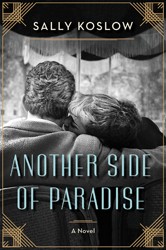1. Describe your own experience with the story of Adam and Eve. When did you first hear it? How have you interpreted it throughout your life?
2. What was the effect of the varying points of view offered in the novel? How does Eve’s voice compare to the voices of the other characters?
3. How does Elissa Elliott shape the tale of Adam and Eve into a love story? If this is a novel of the first relationship, as much as a novel of the first woman, what does it tell us about the nature of lifelong love? What does it tell us about the fundamental differences and similarities between men and women?
4. How did the novel’s version of Elohim compare to your ideas about God? Does the notion of Elohim as male, referred to with male pronouns, affect the way he interacts with the first female human?
5. In her afterword, the author describes some of the distinctions between God’s archenemy as he is portrayed in the Old Testament versus in the Gospel. How did the novel’s version of Lucifer enhance your understanding of suffering in the world? Who (or what) are the modern-day voices of temptation?
6. In Eve, is banishment from the Garden a reasonable consequence for Adam and Eve after they eat from the forbidden fruit? Are pain and toil “punishments” or simply consequences? What was your understanding of Elohim’s plan, and the limits of his power?
7. How does Adam and Eve’s parenting compare to Elohim’s? What does Eve indicate about the nature of disobedience in general?
8. What are Naava’s motivations throughout the novel? Does she mature, or is it simply in her nature to be manipulative? How is she affected by the liaison with her brother? Would you have returned to your family after being with the prince?
9. How would you describe the attitudes of Adam and Eve’s other children? When Aya gives hemlock to Naava against her better judgment, what statement is being made about the differences between siblings?
10. What is special about Dara’s innocent vision of the world? How does she feel about her twin, Jacan? Are their older siblings good role models?
11. What explanation can you offer for Cain’s hatred for Abel? Are such rivalries more common among brothers? How did you react to Elohim’s unequal response to their offerings?
12. Discuss the other belief system described in the novel. What inspires the characters to create a diverse array of gods? What does their experience indicate about why we believe what we believe? Why would it have been tempting to turn to Inanna, the Queen of Heaven, a female deity?
13. Eve is filled with themes of seeds, planting, and birth. What vision of creation is presented in her story?
14. In the end, Eve believes that it is she who kept her eyes and ears closed to Elohim, not the other way around. In what ways was he present for her, and for her family, although they could not see him?
15. The afterword and the author’s website (www.elissaelliott.com) provide considerable resources for additional reading, including biblical passages. Drawing on these sources, what observations can you make about storytelling styles in the ancient world? How does reading a novel spark your imagination in ways that archaeological findings or other histories cannot?
16. Could Lucifer have talked you into eating from the forbidden tree?





